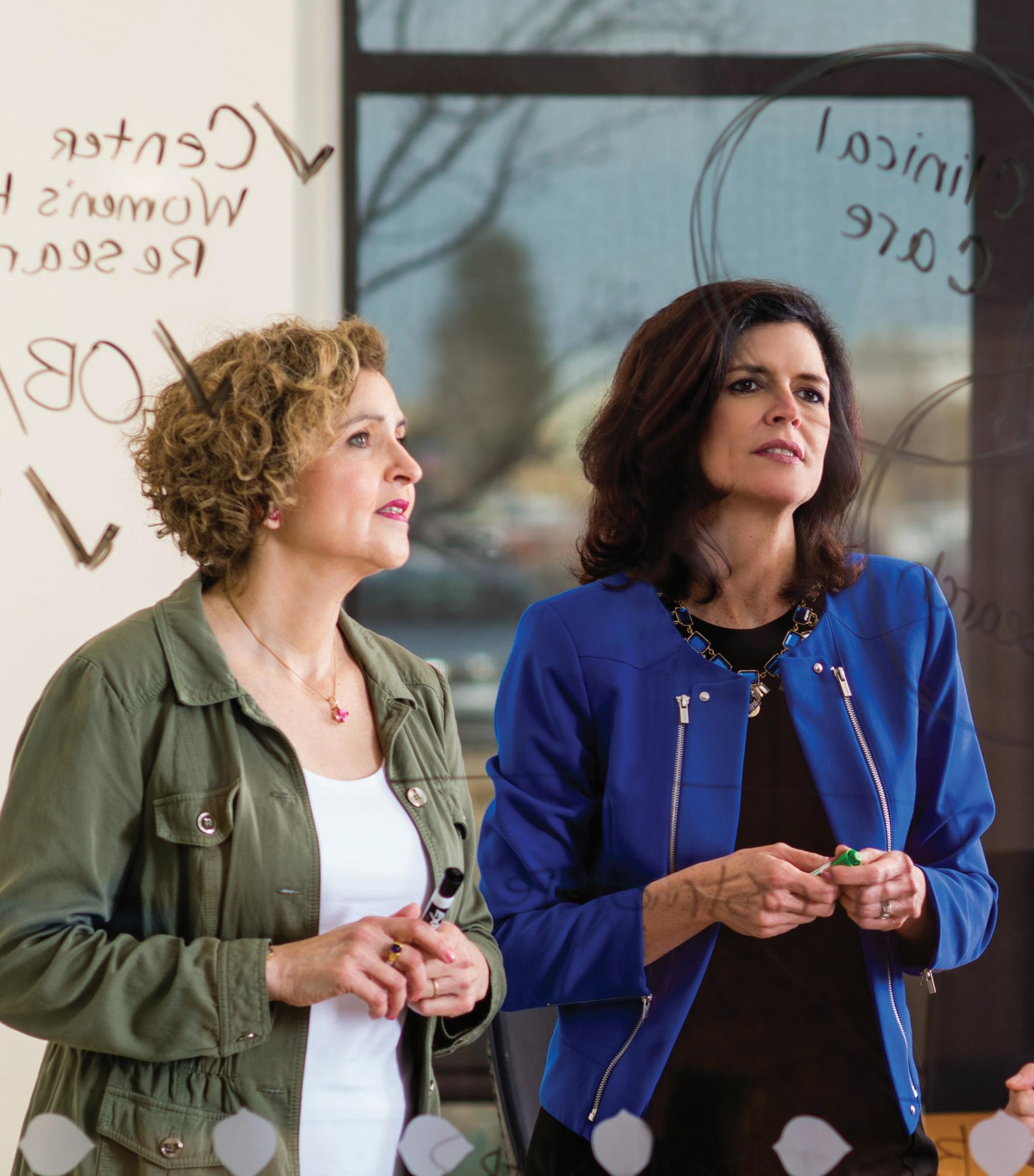
2 minute read
Reimagining Women’s Health: Creating Solutions, Bridging Research and Care
INNOVATION
Reimagining Women’s Health: Creating Solutions, Bridging Research and Care

Women hold the keys to healthy families. They access the health system more than men, both for themselves and on behalf of their children and spouses. Additionally, many women experience major health events including pregnancy and childbirth. Illnesses and the medications used to treat them often impact females differently than males. Moreover, women live longer than men on average, resulting in greater risk for developing chronic medical conditions and greater disease burden related to such conditions.
Yet, for too long, women have had to navigate a disjointed system built on biases with life-altering ramifications. Vital sex differences are often overlooked in diagnosis and treatment of disease and, until the 1990s, women were largely left out of medical research. This gap has not only resulted in incomplete knowledge, but potentially harmful side effects and disparities in outcomes.
What’s more, perceptions among providers and the public have tangible impacts on health. In the clinic, hormonal and genetic differences are often discounted, even while it is widely acknowledged that sex affects symptoms and response to medications. Women’s health issues are often taken less seriously than men’s and, shockingly, females suffering outof-hospital cardiac arrest receive bystander CPR less often than men.
Additionally, the constellation of care for women is fragmented, episodic and hard to navigate. Women see different physicians during different phases of life, resulting in an incomplete picture of their health over time and preventing them from getting the best care.
Today at CU Anschutz, key leaders are reimagining women’s health, leveraging top talent, a collaborative spirit and an innovative culture to bring a bold new vision into reach.
Assembling the Right Team
It takes committed and courageous leaders to transform medicine, and with a new addition to the faculty, a veritable dream team has assembled to lead the charge.

C. Neill Epperson, MD, took the helm of the CU Department of Psychiatry last year as the Robert Freedman, MD, Endowed Chair in Psychiatry. Nearly three decades ago, her passion for studying hormones on the brain and behavior was sparked when she treated her first patient with postpartum depression at Yale University.
Judy Regensteiner, PhD, laid the groundwork for collaboration when she co-founded the burgeoning Center for Women’s Health Research (CWHR) in 2004 to pioneer new pathways in health and close the sex and gender gap in medical research. Dr. Regensteiner holds the Judith and Joseph Wagner Chair in Women's Health Research.
Ten years ago, Nanette Santoro, MD, brought vast expertise in hormones and reproduction to the CU Department of Obstetrics and Gynecology, where she serves as chair and holds the E. Stewart Taylor, MD, Endowed Chair in Obstetrics and Gynecology. She has kept one foot in the clinic and the other in the lab ever since.
Capitalizing on their alignment and collective expertise, the trio began co-creating a vision for what’s next. “We have critical mass — the right leadership and the institutional culture to get things done,” Dr. Epperson said.









